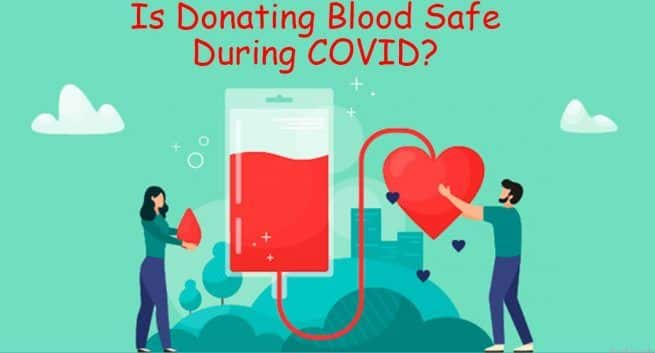
Can Blood Donation Raise Risk Of Contracting COVID? When a person donates blood, little do they realise how it can benefit those in need. Patients dealing with thalassemia and severe anaemia, and those in the emergency room often need blood, and this is when the generosity of thousands comes to play. And in times like these, when mankind is more vulnerable than ever, blood donation holds way more precedence. However, at a time when everyone must stand together to fight the deadly coronavirus, there are many who developed reluctance towards blood donation despite being regulars. This and many more myths like weakness, dizziness, pain, and safety issues revolve around blood donation. On World Blood Donation Day, with this year’s theme being ‘Safe blood saves lives’, we’ll debunk some of the most popular myths that revolve around this act of kindness and generosity.
Myth: Coronavirus Can Spread Through Blood Donation And Transfusion
Fact: Primarily, coronavirus is a respiratory virus that can also infect the gastrointestinal tract. People can become infected by inhaling or ingesting the virus, but not by receiving blood transfusions. Blood cells don’t have the binding sites that COVID-19 looks for. The virus is focused on attacking the respiratory and digestive systems. COVID-19 tests aren’t blood tests; instead, they’re viral genetic material testing performed on respiratory specimens like a throat swab or sputum sample. Medical imaging and a review of symptoms may be used to support these tests.
Myth: During A Pandemic, Blood Donation Centres Are Not Safe
Fact: Several active donors developed reluctance towards visiting blood donation centres due to fear of contracting coronavirus. However, all COVID-19-related protocols are followed religiously at centres. Donors and staff are required to wear face masks at all blood drives or donation centres. Donors are encouraged to follow the same. Temperature checks are done for all internal staff and donors. Hand sanitisers are provided throughout the donation process, and the furniture and other equipment are all spaced out to follow social distancing practices. The disinfection process is also followed for all surfaces touched by staff and donors.
Myth: Donating Blood Is A Painful Process
Fact: Blood donation is not a painful process. Beyond the pinch of the needle and the pressure on your arm from the tourniquet, blood donation does not cause physical pain or discomfort. A donor may experience dizziness or light-headedness during or after donation. However, this post-donation weakness can be dealt with by drinking plenty of water and eating healthy foods.
Myth: Hypertension Or High Cholesterol Patient Can’t Donate Blood
Fact: You can donate blood if you have high cholesterol levels. However, if you are taking blood thinners regularly, then you cannot go to donate blood because in that case platelets can’t be separated from your blood. Hypertension patients can also donate blood if their blood pressure ranges from 100-140mm Hg systolic to 60-90 mm Hg diastolic with or without medication. Till date, there are no findings that hint towards the risk of end-organ damage or secondary complication (cardiac, renal, eye or vascular) or history of feeling giddiness, fainting after blood donation during history and examination. Neither drugs nor their dosage should be altered in a 28-days period.
Myth: If A Patient Donates Blood, He Or She Is At A Higher Risk of Contracting HIV or The Hepatitis B Virus
Fact: Blood donation does not increase the risk of contracting HIV or Hepatitis B. A patient can contract these viruses when exposed to a used needle, however, a fresh needle is used for the bleeding process and comes attached with the blood bag. After completion of the donation, the needle is detached from the bag and destroyed immediately. For every blood donation, a new bag with an attached needle is used. A patient’s blood is also tested for HIV 1&2, Hepatitis B, Hepatitis C, Syphilis and Malaria before it is added to the bank’s holdings.
So, if you are restricting yourself from stepping out to donate blood, or still asking ” Can Blood Donation Raise Risk Of Contracting COVID?” remember that by following COVID-19 appropriate behaviours, your risk of contracting the virus is minimal. Furthermore, the transfusion process in no way is linked to an increased risk of virus dissemination. So quit making excuses, visit a blood donation centre and contribute to those in need.
(Dr. Himanshu Lamba – Consultant and Head of Department, Transfusion Medicine/ Blood Centre HCMCT, Manipal Hospitals, Dwarka, Delhi.)
This post first appeared on The Health Site







